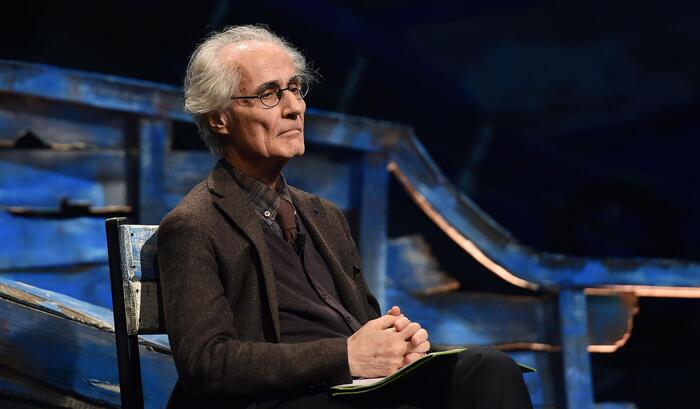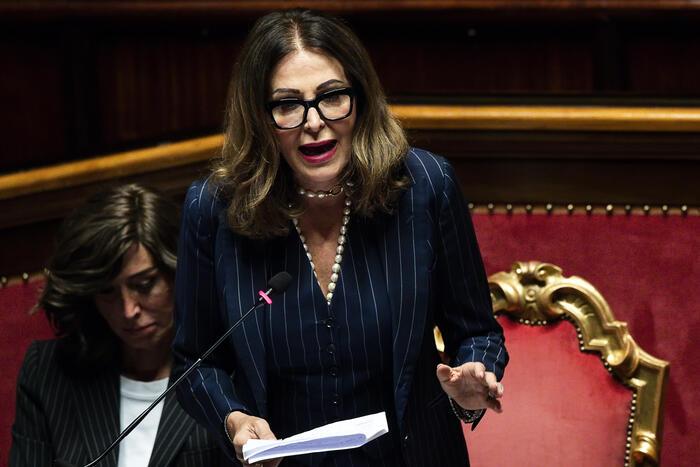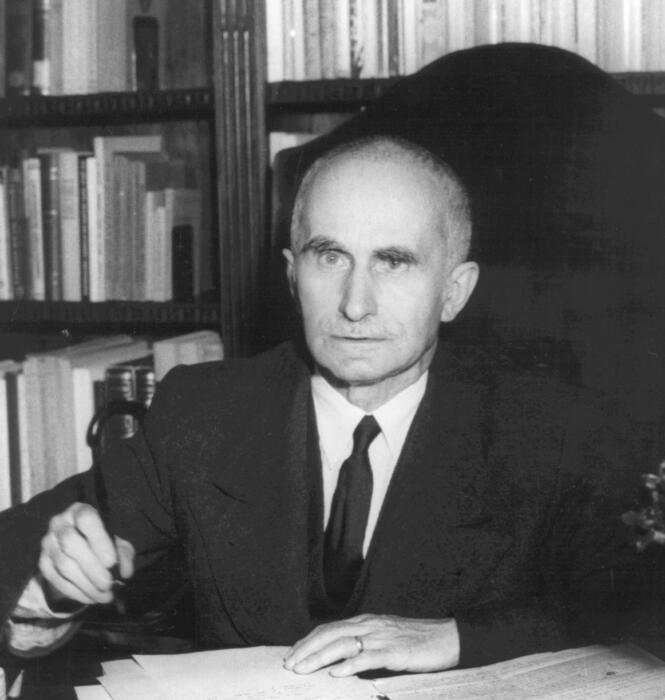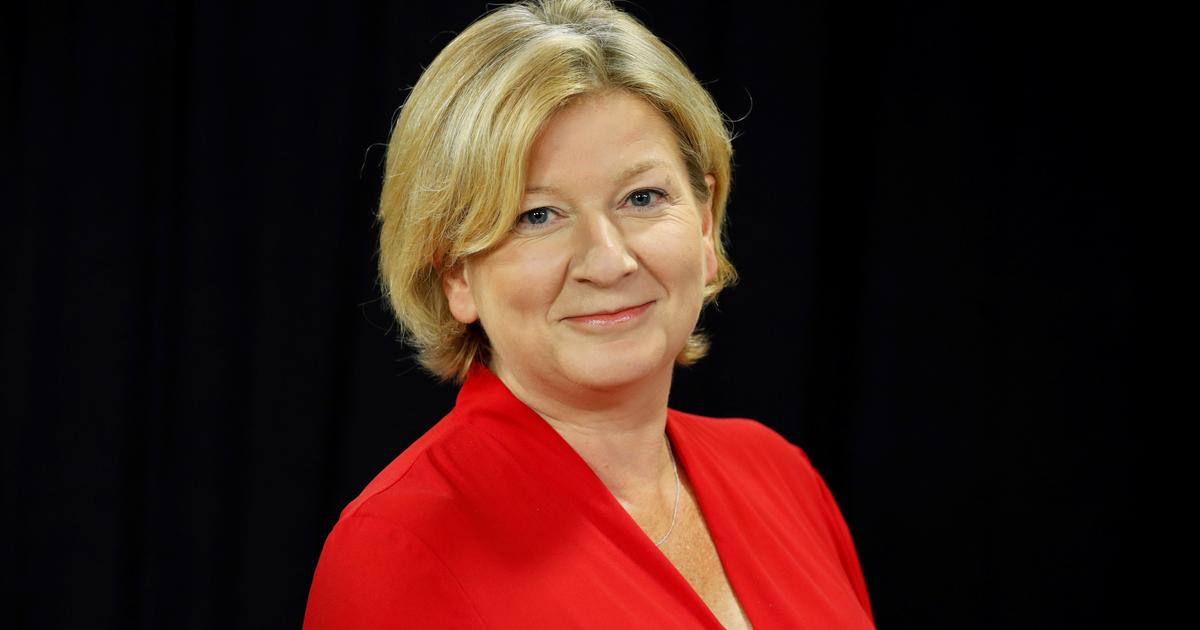Vaccinated in Italy will be able to access restaurants 3:00
Rome (CNN) -
On a narrow, winding street in central Rome, golden cobblestones sparkle on the walkway in front of the houses, engraved with the words: "Deportata Auschwitz" ("deported to Auschwitz").
One of the stones is dedicated to Rossana Calo, who was only two years old when, together with her mother, she was transported hundreds of kilometers to the Nazi death camp.
Upon arrival, she was killed in the gas chambers.
Commemorating more than 1,000 victims snatched from their homes in the Italian capital's Jewish ghetto in October 1943, these plaques are a sobering reminder of the country's dark past.
Italy entered World War II as an ally of Adolf Hitler in 1940, but the fascist regime of Benito Mussolini had already embraced anti-Semitism.
Months after his overthrow in 1943, the German authorities began to corner Jews in Rome and other large cities in the north of the country.
More than 75 years after Mussolini's ignominious death at the hands of partisans, the debate over fascist ideology (and its continuing appeal to some Italians) has been reignited in the wake of the government's attempts to control the coronavirus pandemic.
advertising
On October 9, the headquarters of Italy's largest union and the emergency room of a Rome hospital came under attack during angry protests against the country's covid-19 "Green Pass."
Italy requires a vaccination certificate from its workers 0:49
The Green Pass, which came into effect last Friday, requires all workers - from cafeteria staff to caretakers, taxi drivers and teachers - to show proof of vaccination, a negative result or a recent recovery. of infection.
Once the epicenter of covid-19, Italy now has the strictest vaccination mandate on the continent.
Members of the neo-fascist Forza Nuova were arrested in connection with the violent attacks in Rome.
The golden cobblestones outside the entrance gates in Rome's Jewish ghetto commemorate the people arrested and deported to Auschwitz.
Two-year-old Rossana Calo was one of them.
Ban on fascist parties
"Fascism never disappeared in this country," said history professor Simon Martin, author of several books on Italian fascism.
"Italy has not faced its past. There is no appetite for it, I think, on either side."
Martin said thousands of people continue to queue each year on anniversaries, such as Mussolini's birth, death and "March on Rome," to visit his grave at Predappio, 321 kilometers northeast of Rome, despite the fact that he led a repressive police state and was responsible for brutal colonial campaigns and massacres during his 20 years in power.
Italian police dismantle a scheme for the sale of fake covid-19 health passes on Telegram
"He has a condolence book that needs to be changed regularly because it fills up," he said.
A 1952 law prohibited the reconstitution of fascist parties in Italy, but they have been reformed under alternative names, Martin told CNN during a visit to the Jewish ghetto.
The violence of the protests against the green pass on October 9 has increased calls for the dissolution of neo-fascist groups in the country.
Organizers canceled a demonstration against the covid-19 green pass in the northeastern city of Trieste scheduled for this Friday and Saturday, and urged protesters not to attend for fear of violence.
Italian lawmakers vote to ban all neo-fascist political parties
This week, Italian lawmakers, both in the Upper House and the Lower House, voted in favor of a motion tabled by the country's center-left parties, calling on the government of Prime Minister Mario Draghi to dissolve Forza Nuova and all neo-fascist-inspired movements.
Draghi and his Council of Ministers will now consult legal experts before announcing a decision.
Forza Nuova's lawyer Carlo Taormina told CNN that the group is being dismantled and that it has not been active as a political movement for 20 months.
People gather in Piazza del Popolo during a protest against the Covid-19 health pass, in Rome, on Saturday, October 9, 2021.
In response to the violent scenes on October 9, tens of thousands of people demonstrated against fascism in Rome's Piazza San Giovanni over the weekend.
"I have come here because it is important to send a message," Jacopo Basili, 30, told CNN at the rally organized by major Italian unions.
"What has happened is very bad, as if we went back to 100 years ago in Italy. Today we must say no. It is not possible."
Another protester, Leone Rivara, told CNN that he does not believe that the threat of fascism in Italy today is comparable to that of Mussolini's time, but that social tensions in the country have been "compounded by the pandemic," and that "the forces that declare themselves democratic ... cross the borders and exploit the weakness, the fragility, the anger, the illusion of the people to [alter] the democratic balance of this country."
One group accused of doing just that is the Fratelli d'Italia, or Brothers of Italy, a right-wing party that made international headlines when one of its members, Rachele Mussolini (Benito's granddaughter) retained her seat in the town hall. from Rome earlier this month.
Rachele Mussolini obtained more than 8,200 votes (the highest number of votes obtained by a candidate) and a huge increase from the 657 votes she received in the 2016 vote.
"I will strive not to disappoint those who trusted me and to conquer those who do not know me (...). My goal is to continue working for my city to restore its lost dignity," he wrote in a Facebook post after his re-election.
CNN contacted Rachele Mussolini, through her press secretary, to ask if she finds it difficult to distinguish herself from the fascist associations tied to her last name, but has received no response.
Violent anti-vaccine protests in Rome 0:52
She is not the first descendant of the Italian dictator who is dedicated to politics.
His stepsister Alessandra was a deputy in Silvio Berlusconi's center-right alliance Pueblo de la Libertad, and was a member of the European Parliament.
Opinion polls suggest that Fratelli d'Italia, which grew out of the neo-fascist Italian Social Movement (MSI) party, is currently Italy's most popular party.
The Fratelli d'Italia party, along with the right-wing Lega de Matteo Salvini and the center-right Forza Italia, recently supported radio host and lawyer Enrico Michetti in his fight to become the next mayor of Rome.
On Monday, Michetti lost the second round by about 20%.
During the campaign, unknown persons painted his office with the word "fascist".
Asked why Fratelli d'Italia remains affiliated with fascism, the party's leader, Giorgia Meloni, told CNN that her party is not a breeding ground for that regime.
Andrea Ungari, a professor of contemporary history at the LUISS University in Rome, said he believes that a small proportion of Italians could be defined as having fascist beliefs.
The neo-fascist groups Forza Nuova and CasaPound did not participate in the last Italian elections.
"It is difficult to define Fratelli d'Italia as a fascist party," Ungari said.
"Of course, there are some statements ... some harsh attitudes ... it is clearly a right-wing party but with the difference between right and extreme right."
"In Italy there is the heritage of fascism, of course, but sometimes it is a term used by the left to monopolize the political debate," Ungari warned.
Numerous reminders of fascism
Countries around the world removed monuments linked to racism, colonialism and shameful moments in history in the wake of the Black Lives Matter protests.
However, in Italy the architecture of the 20 years of Benito Mussolini's rule remains.
Unlike Germany, which banned and eradicated Nazi symbols after World War II, Italy left behind numerous reminders of the time of fascism.
Rome's sports complex - Mussolini Forum -, which houses the city's main football stadium, the Olympic Stadium, has been renamed the Foro Italico, but an 18-meter marble obelisk bearing Mussolini's name still stands in its exterior.
The Ostiense railway station, which was built to commemorate Hitler's visit to Rome in 1938 and which features a thematic mosaic around the Italian fascist ideology that modern Italy was the heir to ancient Rome, remains a from the main railway stations of the city.
The Mussolini-commissioned building Palazzo della Civiltà Italiana is the centerpiece of Mussolini's Esposizione Universale Roma neighborhood and remains a symbol of the country's fascist era.
And the Palazzo della Civiltà Italiana (a six-story marble tower built as the centerpiece of the new Mussolini neighborhood, Esposizione Universale Roma, in the southwest of the city) is still etched with a line from his 1935 speech announcing the invasion of Ethiopia.
"I think the real problem with those statues is that there is nothing that contextualizes them ... [nothing] that tells us what fascism was," said history professor Martin.
Martin said that, although it is not practical to tear down all the buildings from the fascist era in Italy, due to the large number of them, "you have to contextualize them. You have to talk about what it means."
As for the motion to ban neo-fascist groups and parties, "it would be a declaration of intent by the government," Martin said, but it is unlikely to change people's ideas.
CNN's Barbie Latza Nadeau and Nicola Ruotolo contributed to this report.
Covid-19 Italy









